Law enforcement’s goal of taking Boston Marathon Bombing Suspect #2, [1] Dzhokhar Tsarnaev, alive was commendably achieved. A principle reason for this goal was to question Tsarnaev about further potential dangers to the public. The FBI has announced its intent to question him “extensively” prior to reading him Miranda warnings, relying upon the “public safety” exception to delay advising him of his rights.
Issues of Miranda Warnings and a “public safety exception” have been in the news. Reporting and commentary have not properly informed the public of the law.[2] A former US Attorney incorrectly talked of “giving” Tsarnaev his “rights”. Statements of “giving” rights are wrong.
“Miranda Rights” vs. “Miranda Warnings”
“Miranda Rights” are stated in the US Constitution . These rights belong to a person and are not something that police or prosecutors have the power to “give”. The rights [3] referred to are in the Fifth and Sixth Amendments. The Fifth Amendment provides: “No person …. shall be compelled in any criminal case to be a witness against himself…” The Sixth Amendment provision involved is: “In all criminal prosecutions, the accused shall enjoy the right …to have the Assistance of Counsel for his defence.” [4]
“Miranda Warnings” refer to the admonitions that advise a person of the Right to Remain Silent and the Right to Counsel in the Fifth and Sixth Amendments. The Right to Counsel for all defendants, indigent or otherwise, was affirmed in Gideon v. Wainwright. The Supreme Court determined in Miranda v. Arizona, that the Rights to Silence and Counsel meant little to a person unaware of them. The result was the Miranda Warnings.
The Supreme Court determined in Miranda v. Arizona, that the Rights to Silence and Counsel meant little to a person unaware of them. The result was the Miranda Warnings. The Warnings are something that law enforcement “gives”.
As the Supreme Court has said Miranda Warnings are “not themselves rights protected by the Constitution but [are] instead measures to insure that the right against compulsory self-incrimination [is] protected.”
Consequence of Failing to “Give” Miranda Warnings
“Miranda Warnings” are related to Rules of Evidence.[5] If someone is in the custody[6] of law enforcement, and the officer wishes to question him, for statements responding to the questions to be used as evidence against that person, typically, Miranda Warnings are required.[7]
Prior to Miranda v. Arizona, “voluntary” statements could be used as evidence. Courts were full of cases trying to determine if a statement was “voluntary”. Miranda Warnings were devised to ensure people were aware of their rights and remove the “voluntary” issue from most cases.
The basic rule[8] is that a statement or evidence gathered as a result of a statement[9], made during a custodial interrogation by someone who has not been advised of his “Miranda Rights” cannot be used against him in court.
There is a common misperception that failing or delaying giving the Miranda Warnings makes an arrest illegal. The failure or delay only limits evidence; it has no bearing on an arrest’s validity.[10] A prime example of that is Ernesto Miranda himself. The Supreme Court overturned his conviction. He was sent back to Arizona and retried. Statements he made were not used at the new trial. Miranda was convicted and sentenced to prison.
The Public Safety Exception
In 1980 Benjamin Quarles was accused of criminal possession of a weapon. A woman told police that she had been raped by Quarles, that he had a gun, and just entered a nearby grocery store. Officer Frank Kraft entered the store, observed Quarles, and after a chase around the store, detained him. Kraft’s search of Quarles revealed an empty shoulder holster. Kraft asked Quarles where the gun was, to which Quarles replied: “Over there” nodding toward some empty cartons. Kraft recovered a loaded .38-caliber revolver.
In court, Quarles objected to the use of the gun as evidence. He had given the statement to police while in “custody” and not been given his Miranda Warnings.
The Supreme Court found the case presented “a situation where concern for public safety must be paramount to adherence to the literal language of the prophylactic rules enunciated in Miranda.” The Court ruled the gun and the statement could be used against Quarles in a trial. Kraft’s gun questions were for the safety of the public. Kraft made a split-second decision. The “Public Safety Exception” to Miranda Warnings was born in response to the immediate [11] danger of a missing gun.
When the Exception applies, statements and evidence obtained prior to Miranda Warnings can be used in court against the person making the statements.
The Public Safety Exception and the Suspected Boston Marathon Bomber
The Public Safety Exception has been applied in situations involving imminent danger and the need for immediate information.[12] “Miranda Rights” are constitutional and belong to a suspect regardless of whether “Miranda Warnings” are given. The Warnings are to be certain a suspect is aware of his rights.[13] The result of a failure to provide Warnings is to limit evidence in court, not to prohibit prosecution.
The Public Safety Exception is a rule of evidence. Evidence in the Boston Marathon Bomber case publicly known [14] appears overwhelming.[15] The need to use statements made by Tsarnaev without Miranda Warnings for conviction of serious charges [16] seems highly unlikely.
The Public Safety Exception has been improperly presented and discussed. As the case has developed, there is no legal reason for it to apply [17] nor is it likely to have any effect on Tsarnaev’s prosecution, and is unrelated to the legality of his detention.
Difficult Cases Make for Bad Law
The bombings, the gun battles, the deaths and human toll have been horrific. Answers to the how, why and if there are others involved are critical. Certainly Tsarnaev has information of importance: the location of weapons and explosives, the identity of others involved, and more. The idea that this information can be legally acquired under a concept created for different circumstances misrepresents the law. Misrepresentation of the law to justify how Tsarnaev is treated endangers the rights of others.
In nearly every arrest a subject may have information of value affecting the future safety of others. A DUI arrest may involve issues of a bar that illegally serves intoxicated customers. Any drug arrest involves possibly finding the source or location of drugs to prevent future circulation. Any violent crime involves questions of motivation to prevent future crimes. Any weapons arrest raises questions of the existence of other weapons or supply.
The Public Safety Exception rationale being misrepresented in the Boston Marathon Bombing context can be applied to almost every arrest. Public acceptance of the rationale would effectively do away with Miranda Warnings completely.
______________________________________
[1] There is a mountain of evidence regarding Tsarnaev. He remains a “suspect” or “alleged” bomber in keeping with the “presumption of innocence” and 6th Amendment Right to a Fair Trial. The practice of such media & government references dates to Sheppard v. Maxwell, a murder case sensationalized by the press. The case inspired The Fugitive television series and movies.
[2] Some reports have indicated that the Public Safety Exception allows Tsarnaev to be detained indefinitely. This is not true. Times of detention are criminal procedures unrelated to the Public Safety Exception. There are statutory time frames related to filing of charges, presentation to a judge, grand jury indictments, setting of bail and more. Comments regarding the Public Safety Exception and a 48 hour limit are untrue.
[3] Part of the Bill of Rights, the first ten amendments to the Constitution. The 4th, 5th, 6th and 8th Amendments all relate to protections from the power of government for those accused of crimes.
[4] The 5th Amendment says: “No person” and the 6th refers to “the accused”. No reference to “citizen” is involved. Discussions of Tsarnaev’s status as a naturalized American citizen relating to Miranda issues mislead the public. Constitutional rights attach to anyone prosecuted in an American court: legal alien, illegal alien, natural born or naturalized citizen.
[5] Rules of Evidence govern what information may be presented in a court room during a trial.
[6] “Custody” is a legal term of art. As to when Miranda applies “the ultimate inquiry is simply whether there is a `formal arrest or restraint on freedom of movement’ of the degree associated with a formal arrest…” This can be as simple as a traffic stop that no reasonable person would drive away from.
[7] “Voluntary” or “spontaneous” statements made by someone in custody may be introduced as evidence even if someone has not had the benefit of Miranda Warnings.
[8] This is one part of the “exclusionary rule” in criminal cases, which prohibits the use in court of evidence obtained illegally by law enforcement.
[9] This is referred to as “fruit of the poisonous tree”.
[10] The validity of an arrest is tested by the Fourth Amendment’s requirement of “probable cause”.
[11] Most cases applying the Public Safety Exception have been like Quarles, with an immediate danger. A situation similar to Tsarnaev’s with a hospitalized suspect (wounded during his arrest) and questions about bombs was UNITED STATES OF AMERICA v, ABU MEZER, Abu Mezer was questioned in the hospital prior to receiving Miranda Warnings, and gave information about the bombs and his intentions. The statements were admitted as evidence. A difference from Tsarnaev is that the hospital questioning in Abu Mezer was the same afternoon as his arrest, reasonably close in time.
[12] Accounts of Tsarnaev’s arrest indicate he was questioned about explosives either on his person or in the boat at the moment of arrest. Such questions are clearly within the Public Safety Exception.
[13] Tsarnaev has been in the US since he was nine years old. No doubt he has watched CSI, Law and Order and other police dramas. High school civics should have educated regarding rights belonging to those accused of crimes. The Public Safety Exception does not prevent Tsarnaev from asserting rights he is aware of. He may remain silent and request a lawyer whether he is formally informed of those rights or not.
[14] Certainly much evidence beyond the publicly known videos and statements made to the carjack victim is in the possession of law enforcement.
[15] Though the “presumption of innocence” remains with him as a legal matter.
[16] Up to and including charges with a potential death penalty.
[17] There seems to be an assumption that if informed, Tsarnaev will choose not to speak with authorities. He may not do so, informed or not. In some cases, an attorney can facilitate communications between prosecution and the accused in a way that is impossible when the accused is not represented. The subject of treating the surviving suspect as an “enemy combatant” is separate and apart from issues of the Public Safety Exception.
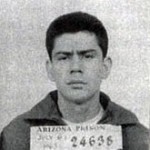
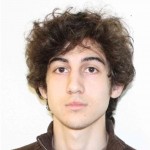
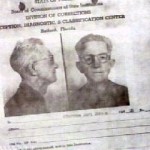
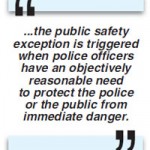
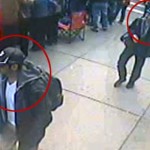







[…] Read the full article here […]